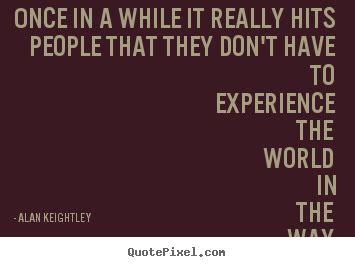A Quote by Alan Keightley
To have Zen is to be in a state of pure sensation. It is to be freed from the grip of concepts, to see through them. This is not the same as rejecting conceptual thinking. Thoughts and words are in the world and are as natural as flowers. It is a mistake therefore to think that Zen is anti-intellectual.
Related Quotes
Zen purposes to discipline the mind itself, to make it its own master, through an insight into its proper nature. This getting into the real nature of one's own mind or soul is the fundamental object of Zen Buddhism. Zen, therefore, is more than meditation and Dhyana in its ordinary sense. The discipline of Zen consists in opening the mental eye in order to look into the very reason of existence.
Zen is really extraordinarily simple as long as one doesn't try to be cute about it or beat around the bush! Zen is simply the sensation and the clear understanding ... that there is behind the multiplicity of events and creatures in this universe simply one energy -- and it appears as you, and everything is it. The practice of Zen is to understand that one energy so as to "feel it in your bones.
If you are thinking, you can't understand Zen. Anything that can be written in a book, anything that can be said - all this is thinking . . . but if you read with a mind that has cut off all thinking, then Zen books, sutras and Bibles are all the truth. So is the barking of a dog or the crowing of a rooster. All things are teaching you at every moment, and these sounds are even better teaching than Zen books.
Not thinking about anything is zen. Once you know this, walking, standing, sitting, or lying down, everything you do is zen. To know that the mind is empty is to see the buddha.... Using the mind to reality is delusion. Not using the mind to look for reality is awareness. Freeing oneself from words is liberation.

























